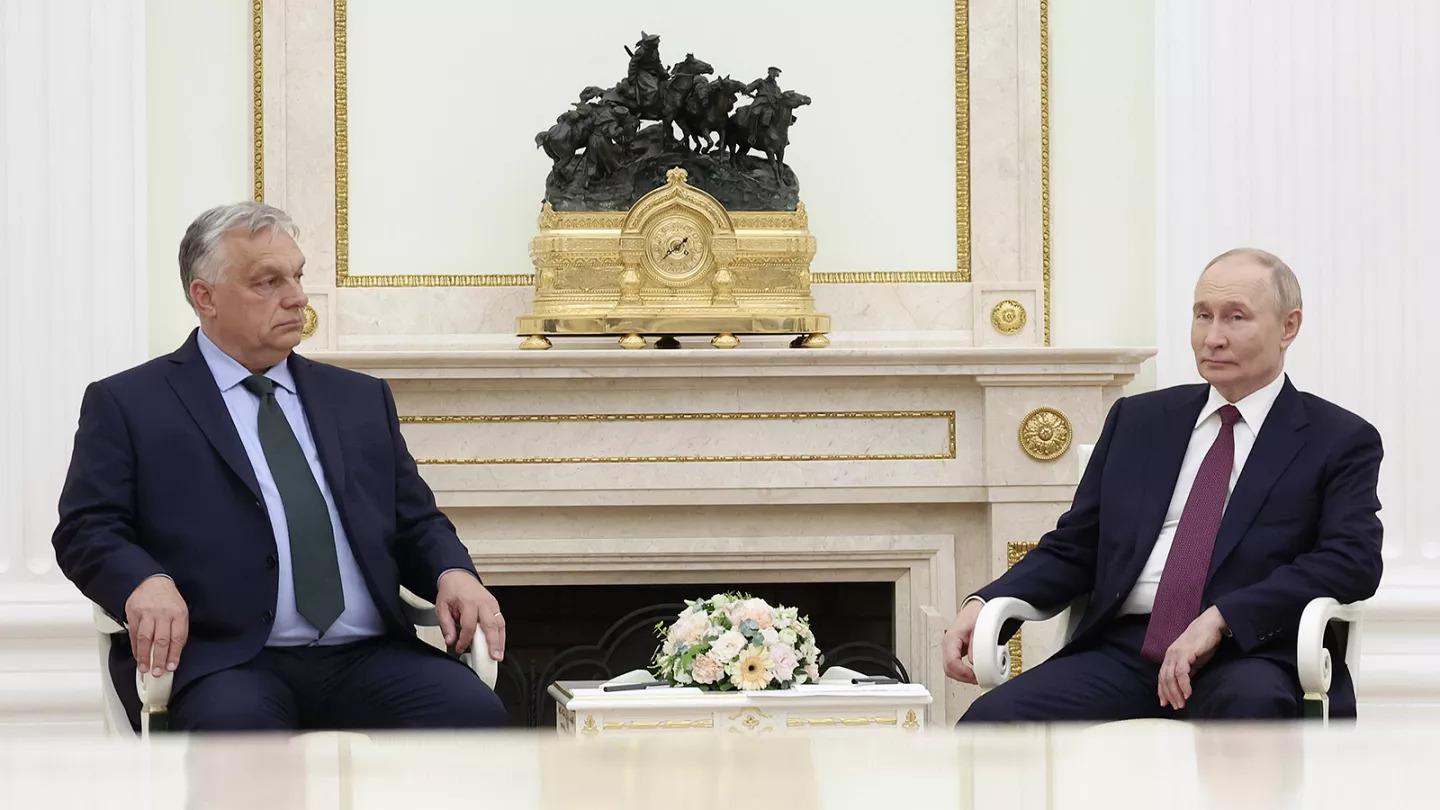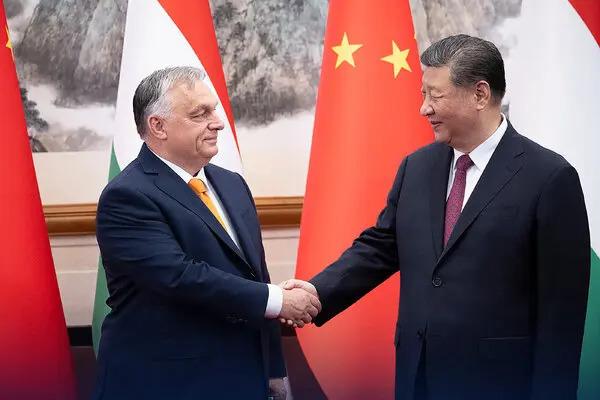Will Viktor Orban's surprise visits alleviate the Russo-Ukraine War? Resuming dialogue
On July 3, Hungarian Prime Minister Viktor Orban visited Kyiv to meet President Volodymyr Zelenskyy to discuss the potential options for the peaceful settlement of the Russo-Ukraine war. Unlike the collective European Union (EU), Hungary adopted a specific approach to the Ukraine war, which in turn caused an outcry in Kyiv. Hungary's main peace strategy envisions an immediate ceasefire between Moscow and Kyiv and a suspension of arms supply to Ukraine.
Despite the EU's anti-Russian stance and sanctions package, Hungary remains one of few countries to maintain close partnership ties with Russia, including another major Western rival, China. Notwithstanding PM Orban’s enthusiasm for bringing two neighboring states to a "peaceful solution," the ceasefire plan between the two parties raised skepticism in Kyiv and Europe. Hence, Orban's visit to Kyiv ended with no result, while Moscow also did not demonstrate a willingness to make serious concessions to Ukraine.
At this stage, a potential ceasefire with Russia would require Ukraine to withdraw from all its eastern territories, thus "greenlighting" Russia's invasion and giving it a critical opportunity to strengthen its footprint in Eastern Ukraine. Therefore, it seems impossible for Hungary to mediate peace between Kyiv and Moscow despite its rotating EU presidency.

Indeed, for Russia, the visit of Viktor Orban was a significant diplomatic milestone as the Hungarian PM was the first Western leader to visit Russia since February 2022. Despite its bellicose pro-war rhetoric, Moscow desperately eyes an opportunity to normalize ties with the West in order to ease economic sanctions in light of the harsh economic situation and unstable national currency. However, Moscow will unlikely agree to give up on Eastern Ukrainian territories in exchange for financial relief and lifting sanctions partly. Simply put, Russia aims to legitimize its current military gains in Ukraine in exchange for a ceasefire.
However, President Volodymyr Zelenskyy has long said Ukraine will not negotiate with Moscow until Russian forces leave all Ukrainian territory, including Crimea. Although Orban's visit to Kyiv and Moscow aimed at mending ties, it also revealed Hungary's diplomatic standoff with other Eastern European countries, such as Poland. In light of Orban's meeting with Vladimir Putin, Polish Prime Minister Donald Tusk expressed disbelief at Orban's Moscow trip, while Finnish Prime Minister Petteri Orpo called it disturbing news.
Consequently, Prime Minister Viktor Orban's surprise visit was not limited to Kyiv and Moscow, as on July 7, he landed in Beijing to meet President Xi Jinping. Compared to the EU states, Hungary is the favorite destination for Chinese investments, particularly in the industrial sector. For example, the country hosts a number of Chinese electric vehicle battery facilities, and in early 2024, it was announced that Chinese EV manufacturing giant BYD will open its first European EV production factory in the south of the country.

Undoubtedly, one of the most important topics on Orban's agenda in Beijing was the Russo-Ukrainian war. Hungary believes that China, as Russia's key strategic partner, has sufficient leverage over Moscow to push both sides for a ceasefire. However, China claims neutrality in the war despite close and deepening ties with Russia, which Xi and Russian President Vladimir Putin most recently hailed during a meeting on the sidelines of the Shanghai Cooperation Organization summit in Astana.
Nevertheless, China’s potential involvement in peace negotiations between Kyiv and Moscow would jeopardize Beijing’s uneasy relations with the United States (US), which is alarmed by the growing “activities of China” in Europe and the Middle East. Therefore, Beijing will unlikely interfere at this moment in order not to ignite the situation, particularly ahead of the scheduled Washington Summit of NATO countries. The US, however, has accused Beijing of helping the Kremlin meet its war goals in Ukraine by continuing to sell supplies such as drone technology and gunpowder ingredients to Moscow.
Despite Hungary's "Peace Plan 3.0" strategy, PM Orban's recent visit to Kyiv, Moscow, and Beijing is not a critical pillar amid the devastating war, which goes beyond a temporary ceasefire and requires an extended political reconciliation between Russia and the West.








